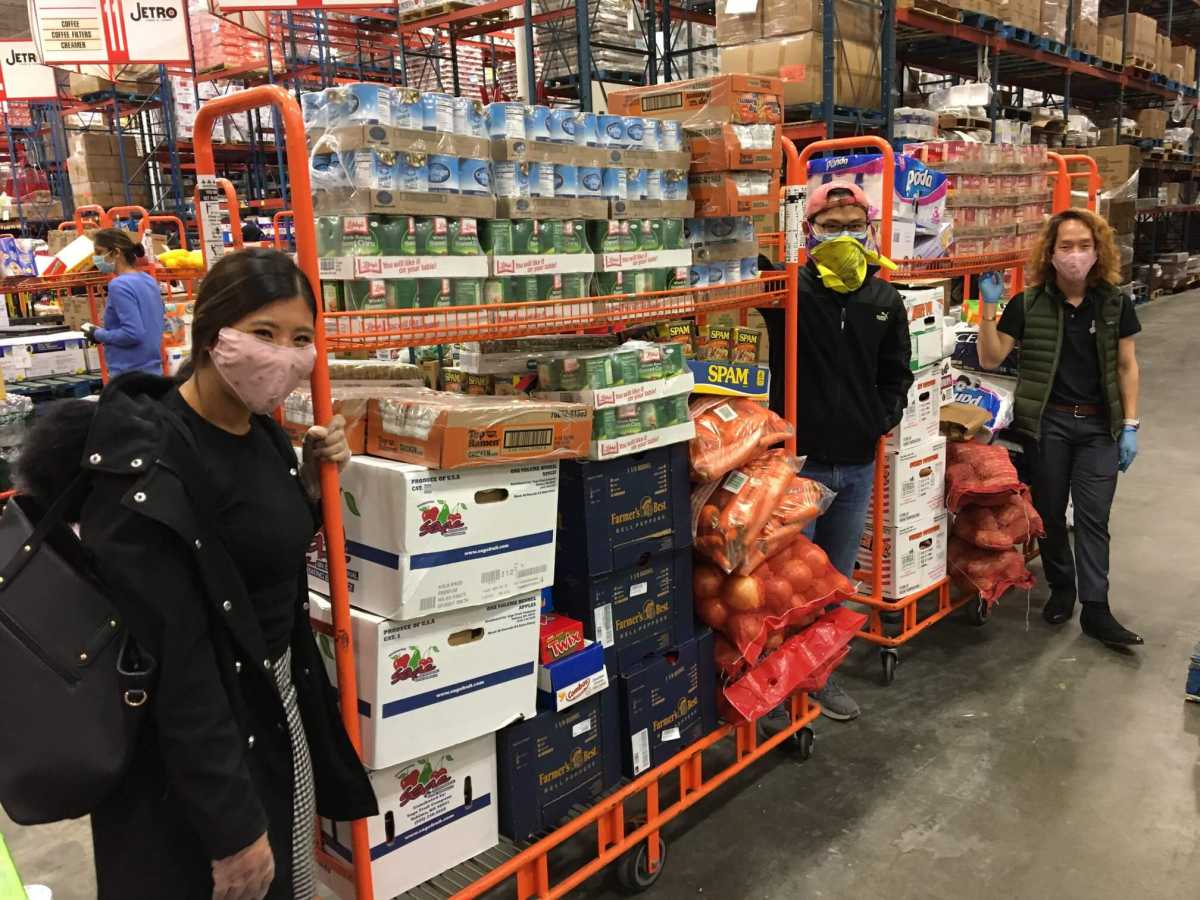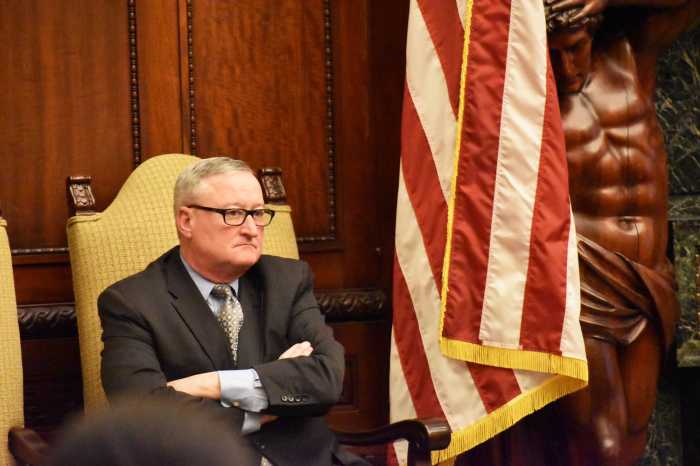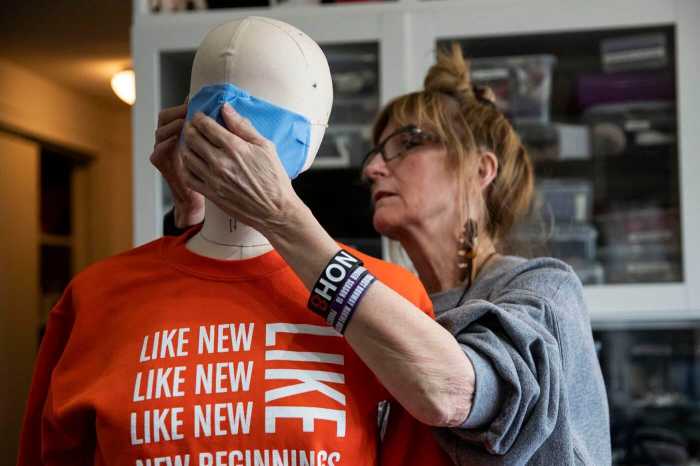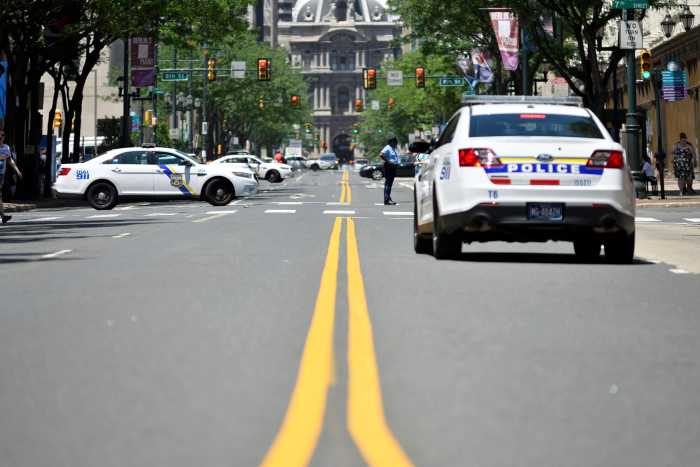In the wake of COVID-19, SEAMAAC, a South Philly-based nonprofit that provides a variety of services to support the community, has refocused nearly all of its efforts on fighting hunger.
It has been a major transition for the organization, and major projects, such as work on a health center for immigrants and a renovation of Mifflin Square Park, have been put on hold.
For the nonprofit’s CEO, Thoai Nguyen, the change has been positive, in a way. SEAMAAC was formed in the 1980s to help refugees from Vietnam, Laos and Cambodia, and, even though it has broadened its scope, some still view it as an organization for Asians.
SEAMAAC’s headquarters, on Broad Street near Morris Street, has become a city-sponsored food distribution site, and, in those lines, Nguyen has sensed a change.
“They understand that we’re in this together, that we’re not just taking care of our own people, however we define our own people as,” he said. “My community is everyone in the City of Philadelphia, and that’s essentially how SEAMAAC sees it.”
Nguyen’s group is dispensing 1,000 boxes of food a week, in addition to 400 to 500 bags of groceries it delivers to seniors in the area.
By next week, they plan to be offering 600 prepared meals a day, thanks to a partnership with South Philly Barbacoa and support from Broad Street Ministries, Project HOME and Prevention Point, Nguyen said.
Since the coronavirus came to Philadelphia, most nonprofits have had to radically alter the ways in which they serve their communities. Events and initiatives have been put on hold to provide basic subsistence, and even that has been difficult.
Most food programs in the region rely on an army of volunteers and food donated from overstocked grocery stores and restaurants. Both those resources have been taxed due to the virus, said Pedro Ramos, head of the Philadelphia Foundation, one of the city’s largest philanthropic organizations.
“Nonprofits have had to respond to probably an unprecedented rate of change and magnitude of change, particularly those nonprofits that are providing front line services,” he told Metro. “Many had to adapt very quickly to be able to continue to do that.”
In addition, with unemployment skyrocketing, the need for nutritious food has grown significantly.
Bill Golderer, CEO of the United Way of Greater Philadelphia and Southern New Jersey, said many nonprofits providing food have had to scale up to meet “a greater amount of need in a very short time.”
The United Way and Philadelphia Foundation teamed up with city leaders to launch the PHL COVID-19 Fund on March 19 to distribute grants to help fund nonprofits that continue to work amid the pandemic. It started with $6.4 million and has now raised a total of $14.5 million, which includes nearly 4,000 small, individual donations.
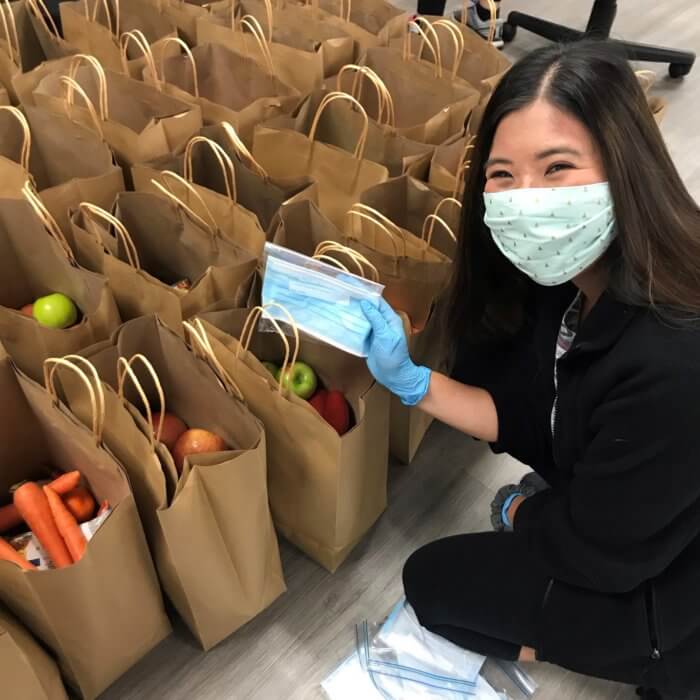
Speed has been the emphasis for the fund, and Ramos and Golderer said the goal has been to distribute money quickly and efficiently where it’s most needed.
More than 900 grant requests, for a total of $26 million, came in, though not not all were eligible. Ramos said a team of 33 grant makers from different organizations has been reviewing the applications.
Though the application window is closed, residents and corporations can still donate at phlcovid19fund.org.
So far, the program has distributed $7.3 million to 193 nonprofits in the Philadelphia region over three rounds of funding, the most recent of which was announced Thursday.
“It does look like that a lot of these early efforts by nonprofits have helped a lot, and we know that we’re sort of not out of this stage yet,” Ramos said.
Golderer said the leaders of the fund have been intentional in connecting with grassroots groups serving populations that can be difficult to reach through traditional means, either due to language barriers or historic discrimination.
SEAMAAC received $50,000 from the PHL COVID-19 Fund, among the largest grants awarded during the second round of funding.
It’s not a game changer for the organization, which has a $3.8 million budget, but Nguyen said the money will be used to bring on more staffing, invest in technology and buy more food, especially rice, beans and grains, which are staples for the immigrant groups SEAMAAC serves.
Nguyen said SEAMAAC prides itself on serving people waiting in line with dignity, and he hopes the extraordinary efforts to address hunger continue long after the virus subsides.
“We don’t believe this is an act of charity at all,” he said. “What we’re doing is an act of justice, an act of social and economic justice.”
“I wish that this could happen like every day or every week of the year, regardless if there’s coronavirus or not, because we know that there are food insecurities even before the virus came,” Nguyen added.



